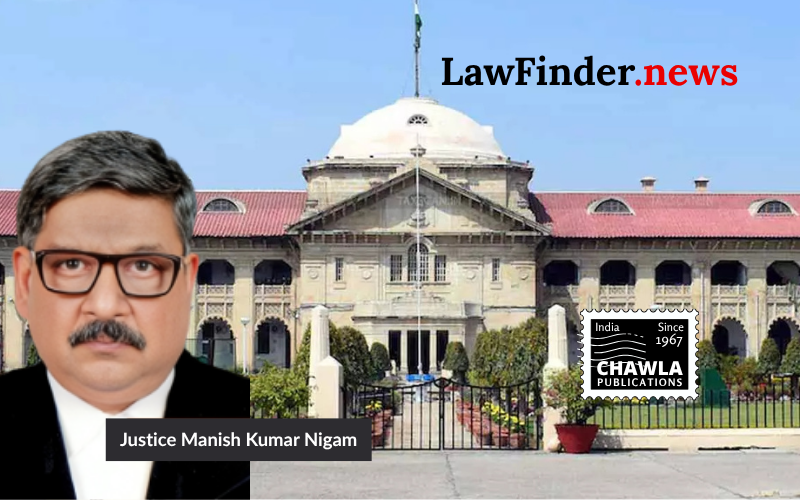Court rules virtual presence and e-filing suffice for election petition presentation during the pandemic, rejecting plea for non-compliance.
In a significant ruling, the Allahabad High Court has addressed the issue of procedural compliance in election petition filings during the COVID-19 pandemic. The case, Veerpal v. Prabhat Tomar, revolved around the legitimacy of an election petition filed both physically and through electronic means during the pandemic, challenging the election of Veerpal as a Zila Panchayat member.
The petitioner, Veerpal, sought the rejection of the election petition filed by Prabhat Tomar, arguing non-compliance with Rule 4(3) of the Uttar Pradesh Zila Panchayats (Settlement of Election Disputes relating to Membership) Rules, 1994. This rule mandates the personal presentation of the petition by the petitioner. Veerpal contended that the election petition was filed by an advocate rather than by Prabhat Tomar in person, thus violating the procedural requirements.
However, the court, presided by Justice Manish Kumar Nigam, dismissed the writ petition, highlighting the extraordinary circumstances posed by the COVID-19 pandemic. The court noted that during the pandemic, judicial proceedings had adapted to allow for virtual modes of filing and hearing, which included e-filing and virtual presence.
In his judgment, Justice Nigam emphasized that the purpose of Rule 4(3) is to ensure the authenticity of the petitioner and prevent frivolous petitions. The court observed that Prabhat Tomar's virtual presence during the petition's hearing satisfied this requirement, as it demonstrated that the petition was not filed by an imposter.
Moreover, the court referred to the Supreme Court's guidelines during the pandemic, which permitted e-filing and virtual hearings to adapt to the restrictions imposed by the health crisis. The court also noted that when the petition was taken up virtually, Prabhat Tomar was present, thereby meeting the rule's objective.
Additionally, the court addressed the issue of material particulars in the election petition. Veerpal argued that the grounds for challenging the election were vague and lacked specific details. However, the court pointed out that the election petition also contained adequately detailed allegations regarding illegal recounting of votes, which provided a sufficient basis for the petition's maintainability.
The judgment further reinforced the principle that a plaint or petition cannot be rejected in parts under Order VII Rule 11 of the Civil Procedure Code. It must be rejected as a whole or not at all. The court cited Supreme Court precedents to support this view, affirming that the election petition was maintainable on the grounds of alleged illegal recounting.
This ruling underscores the judiciary's adaptability in ensuring access to justice during unprecedented times, balancing procedural rigor with pragmatic considerations brought on by the pandemic. The decision affirms the validity of virtual court proceedings and filings as a necessary evolution in the legal landscape.
Bottom Line:
Presentation of an election petition during COVID-19 pandemic through virtual means and physical filing - Compliance with mandatory provisions of sub-Rule 3 of Rule 4 of the Uttar Pradesh Zila Panchayats (Settlement of Election Disputes relating to Membership) Rules, 1994.
Statutory provision(s): Civil Procedure Code, 1908 Order VII Rule 11, Uttar Pradesh Zila Panchayats (Settlement of Election Disputes relating to Membership) Rules, 1994 Rule 4(3), Uttar Pradesh Kshettra Panchayat and Zila Panchayat Act, 1961 Section 27
Veerpal v. Prabhat Tomar, (Allahabad) : Law Finder Doc Id # 2779596




